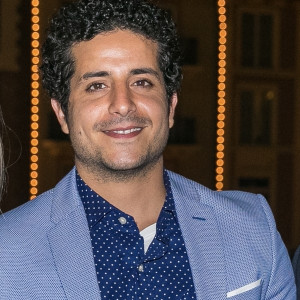For some people, embarking on a journey of learning a foreign language is a giddy adventure; for others, learning new language involves combating a great deal of stress and frustration, compounded with a deep reluctance to hit the books.
Attitude plays a large part in one's ability to learn a second language.
Some of the roadblocks we throw on the path to of motivation toward any endeavor are purely fictional. I have no proficiency for languages, some might say. Or: I can barely speak English; how could I learn to speak French?
And, the most decimating of all: what use would I have for speaking French?
You would have to realise the many benefits of learning French language and culture in order to answer that question most thoroughly.
Enough pop-psychology!
Back to the main point: is learning languages, especially French, a tortuous ordeal to be avoided at all costs?
We contend that learning how to speak French is challenging but enjoyable and – more surprisingly!, an easy endeavour that everyone can, and maybe should undertake!
Here are a few reasons why fluency in French is easy to achieve...


French is a Grammatically Precise Language
Do you have any plans this weekend?
How would a listener know whether the you in question is one person or a group of people?
You might be standing amidst a group, but the speaker wants to know only about your plans.
In French, this ambiguity would be resolved by using the corresponding pronoun: tu for a single person, or vous for a group.
Unless the person you communicate with is older, in a position of authority – such as your boss, and/or not well-known to you, in which case s/he would use the formal you.
You will have learned how to address someone formally, using vous, early in your French classes Toronto.
In itself, the language of Molière is no more precise than any other language and, if such a claim should be made, the only way to prove it would be by lexical depth – the number of words that populate the vocabulary.
Check out french classes in Ottawa here
English, Arabic and German all have a substantial vocabulary, but they borrow heavily from other languages.
By comparison, French vocabulary is relatively shallow – and the French resist importing words from any other language by law!
Incidentally, do you know how many French words and phrases populate the English language?
What we mean by grammatically precise is that there are virtually no French grammar rule exceptions.
In fact, French grammar is so straightforward that you might start to understand grammatical structures after just a few language lessons; when you've mastered beginner level French vocabulary.
However, there are some facets of grammar in French that are substantially more difficult to grasp, such as grammatical gender.
How does one divine whether an object should be masculine or feminine?
Add to that, word agreement: if the noun in is feminine – has a la or une article; then the adjective must also be in feminine form.
A white shirt would translate to une chemise blanche; but a white sweater would become un chandail blanc. Note the feminine and masculine adjective endings!
Here, we give a touch of encouragement: French grammatical gender is much simpler for the English speaker to learn than in other languages, such as German!
No need to search the Internet looking for French classes Montreal when you can head directly to Superprof...
Verb Tenses and Conjugation in French
Whereas the English language has a total of 12 verb tenses, the French language has nearly double that number – all questions of mood aside.
The good news is that you are not likely to need all of them at once, and some, not ever!
Precluding French language skills beyond intermediate, you won't need the more difficult tenses at all – unless you are in a French immersion programme.
Your French teachers have surely impressed upon you that the most important aspect to remember in using any verb tense is agreement.
If the subject is feminine, the verb, where applicable, must have a feminine suffix.
Je me suis lavée depicts a woman who has washed herself. If the writer were a man, there would not be an extra E at the end of the verb.
J'ai mangé – I have eaten, is not genderised, no matter whether a man or a woman has eaten.
Naturally, such agreements are paramount in reading and writing in French. The gender connotation does not change the word pronunciation – in these cases.
There are nouns that do change form according to gender: mâitre versus maitresse – male and female teacher, for example.
As for English speakers, so the native speaker of French: you will find irregular verbs in either language.
We daresay the list of French irregular verbs is substantially shorter than the English one!
And only a handful of French irregular verbs are used in conversational French; compared to about 200 English irregular verbs in daily use.
Start to learn French online here on Superprof.

The Rhythm and the Flow of French
To make this point, let us study a commonly used English word that was imported from French: resume.
In English, when the spoken stress is placed on the second syllable, the word is a verb.
When the spoken stress is on the last syllable – pronounced resumay, it becomes a noun.
Such double-meaning, double-function words are liberally sprinkled throughout the English language.
We, whose native language is English, are used to them and take them in our stride.
Imagine a francophone attempting to decipher the phrase: not on my watch!
Does the speaker mean nothing bad will happen during his time to be on guard, or that nothing should be placed on his device for telling time?
Linguistic experts agree that, because of the syllable stress necessary to make English comprehensible, the end effect of the spoken language is staccato; choppy.
French vocabulary needs no inflection to give meaning to its words. Instead, words are grouped into phonic units and delivered in a unique rhythm.
The words in the noun groups are spoken together quickly, with a rising tone; the verbal phrase with a falling tone and the prepositional phrase, if any, is treated to a rising-falling tone similar to the one used in Mandarin Chinese.
It may take a while for any French learner to get used to that distinctive parlance.
How long do you think it might take you to learn French?
See how you can find out about french classes near me in Winnipeg here.
Placing and Speaking Accents Correctly
What are those diacritical marks on some of the most common words in French? Why are they even used? And why do some Cs have a cedilla under them, and others don't?
We don't need them at all in English, after all!
In a surprisingly large number of cases, said accents are used to denote a now-absent S: étudiant, for example, or école.
The Umlaut – two dots over a vowel are used to indicate that each vowel must be spoken separately: Noël, for example, or naïve.
Beyond that, the issue of accents gets a bit more convoluted.
The accent that looks like a tiny hat; as in forêt, can be used to distinguish between two like-written words: haler, meaning to haul in, and hâler – the verb to tan.
Imagine getting the accents wrong on this word pair: gène meaning gene (as in genome); and gêne – to bother!
How to use a Cedilla in La Langue Française
There! Did you see it? Under the letter C in the word meaning French?
Failure to place a cedilla correctly results in the C sounding like K.
The French rule approximates the English version of I before E: unless the C is followed by either E or I, you must apply the cedilla to obtain the S sound.
Please! Don't ever call for a garcon (pronounced gar-kon)! You will get much better service from a garçon.
Again, rules for accents and other marks apply more to reading and writing French than to listening comprehension or speaking French.
However, with an exquisitely tuned ear, you may well hear the differences between accented homophones such as chaîne and chêne!

Taking Things in Context
When you get right down to it, French and English are not so different: each has grammar rules, homophones and homographs; both languages conjugate verbs and have multiple tenses.
Both languages require the attuned linguist to be aware of nuance – another effective French word!
Nuance and context are closely related concepts in linguistics.
Whereas the first is a subtle difference in meaning, the second represents finding meaning through associated words and actions.
Making use of not on my watch once more...
If you see a man utter that phrase while running, panicked, to his bureau, on top of which lays his wristwatch, you may infer that he does not want something spilled on his watch.
The action provides the context for the meaning of the phrase.
On the other hand, whispering that same phrase could represent either a plea or a threat – that is nuance.
From your French lessons you will learn that the language is rife with examples of subtle nuance and elegant turns of phrase that simply don't translate into our first language.
Phrases whose true, complete meaning can only come to life if you can speak the French language more or less fluently.
Do all of these reasons why you should learn French have you motivated to sign up for language courses?
Once you discover how easy studying French really is, you might feel inspired to learn Russian, learn Spanish or even to learn Japanese!
Wouldn't it be great to put polyglot on your resume?

Should You Learn French?
Deciding to learn French is a big commitment, but it will help you in many ways. Spoken in five continents with over 200 million speakers globally, French is taught and accepted in different parts of the world. France, where French originated from, is also one of the biggest economies known, necessitating individuals to learn French to bridge the language barrier.
Another reason you should hire a French tutor is because language is a known barrier to effective communication and career advancement. When equipped with a valuable skill, like a sound knowledge of a new language, you will enjoy numerous benefits. Often times, foreigners struggle to communicate with natives, leading slower development. But you can change the narrative by enrolling in a French class to know the best way to learn French. Here are other reasons why you should learn French.
Learn French to advance your career
Many employers need professionals that are bilingual to improve the company's reputation and communication with international firms. If you want to get better job offers with higher salaries, you should find an online teacher in French to streamline the learning process. This way, your resume stands out from the mass, giving you a greater chance.
The French language is useful during vacation
Touring is necessary for relaxing and letting loose during your vacation. However, things can be problematic when touring in a foreign country where you don't understand the native language. But when you find French classes near me and register for a French class, you stand a better chance of speaking with natives or other tourists during your trips abroad. With this, you can also make new friends and learn French culture.
Should You Hire a Private French Tutor from Superprof?
Before you search for a teacher in French, you need to decide between attending a group French class and learning French with a private French Tutor from Superprof. Both options have their advantages, with group classes allowing group projects and class participation; On the other hand, having a personal French teacher allows more significant focus on you, helping you find the best way to learn French.
If you are entirely new to the French language, consider hiring a private French teacher. A private tutor will teach you how to learn French using your personalized learning style. You will save more money when you learn French as a group, but you may not get the most of the French classes near me. Here are some other reasons you should hire a private French tutor from Superprof.
Your tutor teaches at your pace
When you hire a private French tutor, you learn at your pace. A group French class is hard to keep tabs on due to the number of students. Similarly, some students learn fast while others need more time to understand new language topics. That said, your private teacher in French will choose a learning method that you prefer. Additionally, they would only move to new topics when you have a grasp on topics they taught.
Your tutor will adapt your learning style
Everyone has a learning style they love to work with when learning a subject or even a language. If you are a visual learner or an auditory learner, your French tutor can shift their approach to fit your personality. Visual learners can complement their learning by using flash cards, while auditory learners can listen to audio tapes or podcasts.
What is the Best Way to Learn French Online?
Discovering the best way to learn French will ease the burden of learning French the traditional way. Today, there are many resources online that people can peruse to learn French. The most important thing you need to learn French is the ability to memorize words and sounds. However, memorization is easier said than done because many people struggle to remember words, especially when learning a new language. Below are some of the best ways to learn French online.

Take French courses
You can either choose to learn French online or attend French classes near me. If you want to stick with online learning, enrolling in a language platform is best to learn French. Language tutors usually start from language basics for beginners, allowing you to know how to learn French from the lowest point.
Watch movies
You can become familiar with French by watching movies with French-speaking actors. Watching these movies will help you expose yourself to the correct pronunciation of certain words. In French, speakers don't pronounce some words as they are spelled. Although this is quite different from how English works, you will become more familiar with French when you see movies.
What to Look Out for When Hiring a French Teacher?
There are many French teachers available on the internet. However, to enjoy your money's worth, you should have some requirements your potential French tutor needs to meet before you hire them. Learning with an unqualified instructor could adversely affect your understanding of French. With this in mind, you should confirm some things before hiring your teacher in French.
Qualifications
The first thing you should ask for is their qualification. A French teacher should have at least a bachelor's degree in the language. They should also be qualified to teach it. Before you attend your next French class, ensure your prospective French tutor has the necessary skills and academic exposure to teach you how to learn French.
Experience
Although many people hire inexperienced French teachers to cut costs, you will benefit more from a seasoned teacher in French. They will show you new ways to simplify your language learning. Similarly, experienced instructors know the best way to learn French so that you can learn French efficiently.
Tech skills
If you plan to hire an online French teacher, you must ensure that they can handle electronic devices. Also, to learn French effectively over the internet, your instructor needs to know how to utilize tech-based learning tools to aid your comprehension. Unlike a face-to-face French class where you don't always need learning tools, online learning demands your teacher in French to use every available tool to make studying faster and easier.

Are There Practices to Help You Learn French?
Learning a new language may seem daunting, but it doesn't have to be when you want to learn French. New language learners incorporate some techniques to aid their French class and become better speakers. Before hiring a French tutor or attending French classes near me, make sure you trust in your ability to learn French. And when you finally hire a French teacher, ensure they are sound at teaching so that they can recommend the best way to learn French.
Similarly, most practices on how to learn French are mainly based on spaced repetition. To understand concepts in French, especially when you are not a native speaker, you need to adopt healthy approaches for faster learning. Below are standard techniques you can incorporate to learn French in no time.
Conversations
As a learner, you might not be confident when faced with starting conversations in French. However, you will find conversations a crucial technique to learn French quickly. While attending a French class would help you immensely, conversing in French would motivate you to learn more about the language. So, whenever you can, speak French with your French tutor. Starting will be Rocky, but don't let that discourage you from your goal.
Set goals
Another best way to learn French is by setting both long-term and short-term goals. For long-term goals, you should envision what you hope to achieve after some months. With this, you can stay on track on your journey to learn French. Still, short-term goals are vital for motivating you daily. So, whenever you are unmotivated to learn French, you should revisit your short terms goals to keep you going.
Where to Find the Best Platform for a French Class?
Finding an excellent platform to learn French is easier than you would have thought. As a language student, learning from a qualified teacher in French would do you much good. Besides the opportunity to further your career, you would also communicate effectively with expatriates and would also be able to relocate to French-speaking regions.
The best platform to learn French is Superprof. Superprof is the world's largest learning platform, suitable for every learner. Besides French, Superprof has numerous courses you can take to achieve your set goals. Similarly, it has many experienced tutors that can take a French class. If you want to be taught by a French instructor from other parts of the world, Superprof boasts millions of dedicated instructors globally.
Superprof is a platform you can trust for both online and face-to-face tutoring. If you prefer learning online, instructors know the best way to learn French using language learning tools and other crucial elements. To hire a teacher in French at Superprof, you need to find your preferred tutor and schedule a class to commence learning.
Even if you are on a budget, you can learn French with Superprof. All courses on the platform are affordable, helping you spend within your budget while enjoying quality tutoring.
Summarize with AI:
















